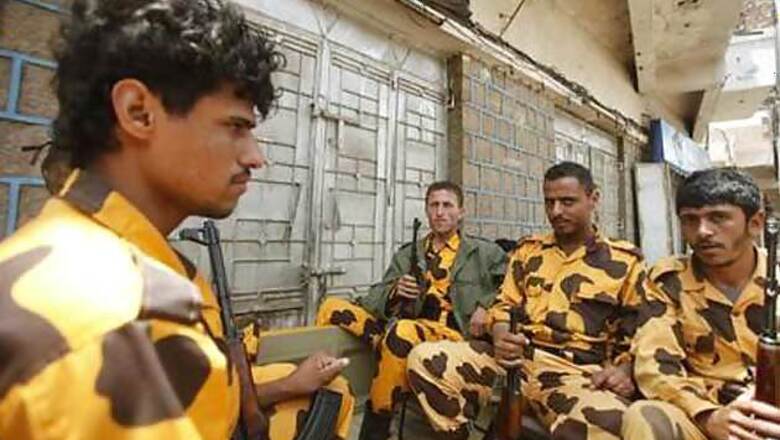
views
A vow made in a phone call by the leader of al Qaeda in the Arabian Peninsula (AQAP) to carry out an attack that would "change the face of history" lay behind this month's closures of many Western embassies, Yemen's president said.
In the first public disclosure by a government leader of details of the intercepted call that prompted the US alert, President Abd-Rabbu Mansour Hadi said AQAP head Nasser al-Wuhayshi made the pledge to al Qaeda leader Ayman al-Zawahri on July 29.
Many US and other Western diplomatic missions in the Middle East, Africa and Asia closed temporarily as a precaution.
Wuhayshi spoke by phone with Zawahri, who is believed to be based in Pakistan, while attending a meeting of 20 al Qaeda leaders in Yemen's Maarib province, Hadi said.
"When I was in Washington, the Americans told us that they had intercepted a call between Ayman al-Zawahri and Wuhayshi, in which Wuhayshi told Zawahri that they would carry out an attack that would change the face of history," the president told police cadets in remarks which state television aired on Friday.
"I told the Americans this would be in Yemen," said Hadi, apparently reflecting a belief among some analysts that AQAP lacks the ability to launch big attacks outside the country.
Hadi, who visited Washington in late July and early August, added that two cars, each carrying seven tonnes of explosives, were later identified in Yemen by security forces.
The first, intended to attack the Mina al-Dhabba oil terminal in southeast Yemen, was destroyed.
The second car was headed for the capital Sanaa and is still unaccounted for, though Hadi said authorities had arrested the cell which was in charge of smuggling it into the city.
"This made them (the Americans) scared and they closed their embassies in the whole region, because they heard Wuhayshi say he would carry out an attack that would change the course of history," Hadi said.
US sources have said that while some type of message between Zawahri and AQAP was intercepted recently, there were also other streams of intelligence that contributed to the security alert.
The US embassy in Sanaa reopened on August 18. It was one of about 20 US embassies and consulates that closed.
Hadi angered many Yemenis last year by giving unequivocal support for controversial US drone strikes in Yemen, which have increased under President Barack Obama.
The Yemeni army, with US backing, last year drove al Qaeda militants and their allies from strongholds they seized during months of turmoil against Saleh's rule.
But the militants have since regrouped and mounted attacks on government officials and installations.
Restoring stability to Yemen, one of the poorest countries in the Arab world and next door to the world's top oil exporter Saudi Arabia, is an international concern.
Al Qaeda in the Arabian Peninsula used Yemen to plot attacks on international aviation and attacked a US warship and a French supertanker in Yemeni waters.
Yemen said in August 2013 it had foiled a major al Qaeda plot to seize two oil and gas export terminals and a provincial capital in the east of the country.




















Comments
0 comment